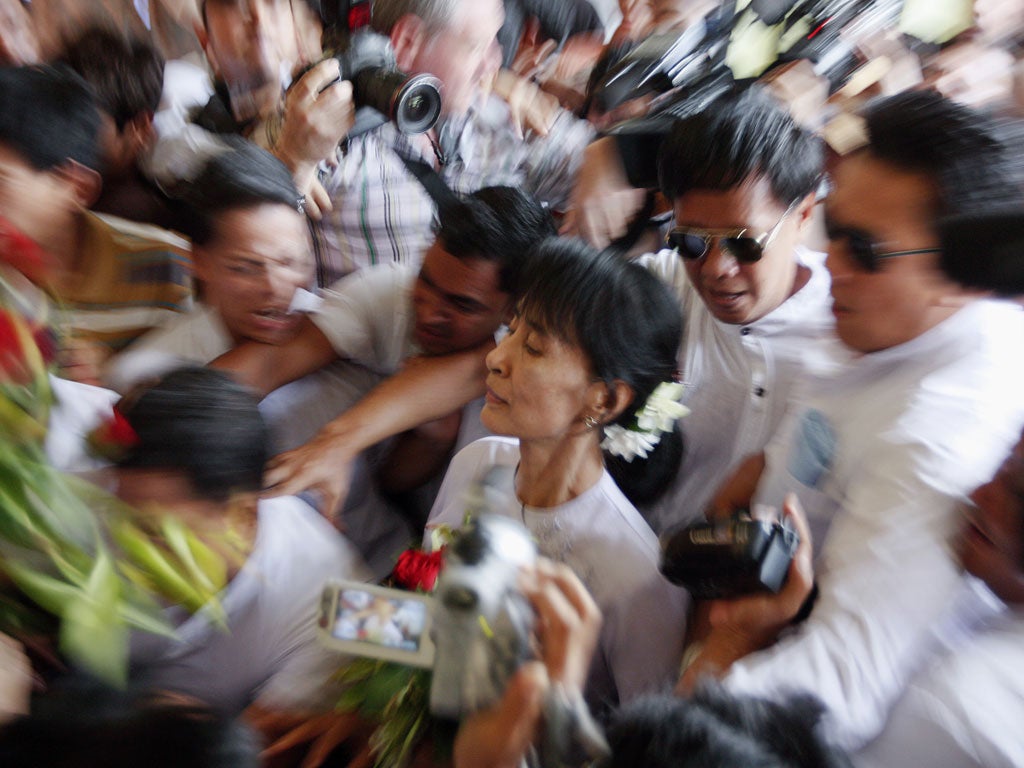
They say they are the forgotten people, that while the world has moved on, beguiled by Burma's flurry of reforms and its by-elections, their own pain endures, unnoticed.
The son of U Thaung Sein and Daw San Myint was jailed 14 years ago for his role in Burma's long-suppressed democracy movement. They had hoped he may have been released with other political prisoners in an amnesty last year or in a more recent one in January. But he remains behind bars.
"Nobody has told us why he has not been released," said the father, a storekeeper who lives in the east of Rangoon. "We have been told nothing."
The couple is not alone. Activists estimate that while the Burmese authorities claim to have set free all political prisoners, anywhere between 300 to 800 individuals remain in jail. They say that after Aung San Suu Kyi was freed from house arrest 18 months ago and the remaining high-profile prisoners such as Min Ko Naing and Ashin Gambira released earlier this year, securing attention for their plight has been increasingly difficult. Most recently, attention has been on by-elections on Sunday that swept Ms Suu Kyi into parliament for the first time.
"The main political prisoners have been released so the rest of the world has forgotten," added Thaung Sein, as his wife wiped her eyes. Their son, Ko Aye Aung, was arrested in 1998 aged 22. Convicted along with dozens of others of crimes related to his democracy activities, he was sentenced to a total of 59 years and sent to Kalay prison in north-west Burma.
The tortuous journey to the jail from their Rangoon home, where a 1995 photograph of their son receiving an essay prize from Ms Suu Kyi hangs on the wall, involves taxis, buses and vans and takes two days. For many years, his parents, both aged 66, could only afford to visit twice a year for a 20-minute meeting. With assistance from the International Committee of the Red Cross, they now make the journey every two months. In March, Ko Aye Aung's mother was, for the first time in 14 years, permitted to hug her son.
"On January 13 this year, there was an early amnesty," she said. "I was hoping that on that day he would be released. The reality is that he is now the only political prisoner in that jail.
"We are trying not to despair. It's very difficult for us. We try to control ourselves not to cry."
Subscribe to Independent Premium to bookmark this article
Want to bookmark your favourite articles and stories to read or reference later? Start your Independent Premium subscription today.

Join our commenting forum
Join thought-provoking conversations, follow other Independent readers and see their replies